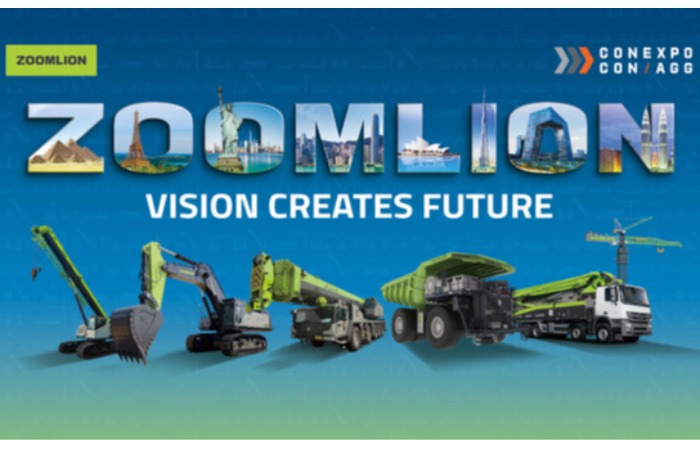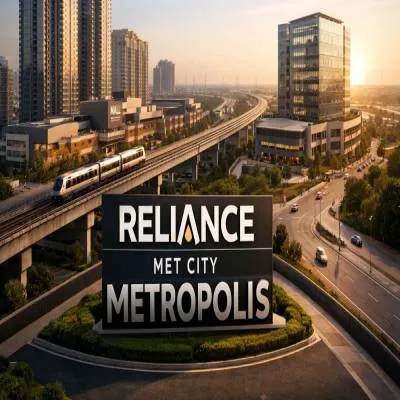Schedule a Call Back
Indian construction industry leads digital transformation in Asia Pacific
 Autodesk recently announced the launch of the second edition of its State of Digital Adoption in the Construction Industry 2024 report in collaboration with Deloitte. The report identified that Indian construction companies are increasingly adopting digital technologies to assist project delivery, optimise internal processes, and overcome the impact of pertinent industry challenges such as growing raw material costs, competition, and labour costs.
Autodesk recently announced the launch of the second edition of its State of Digital Adoption in the Construction Industry 2024 report in collaboration with Deloitte. The report identified that Indian construction companies are increasingly adopting digital technologies to assist project delivery, optimise internal processes, and overcome the impact of pertinent industry challenges such as growing raw material costs, competition, and labour costs.
The annual survey explores digital adoption trends in the rapidly evolving construction sector and is based on insights from 933 construction firms across six markets including Singapore, Australia, Japan, India, Malaysia and Hong Kong. Indian companies are exploring a range of newer technologies aiding all the facets of the business including Data Analytics (as conveyed by 66% of the surveyed construction company representatives), Construction Wearables (61%), Prefabrication and Modular Construction (57%), as well as the integration of cloud software (55%) and mobile applications (55%) to streamline and manage projects efficiently.
Notably, Indian companies surpassed their counterparts from markets such as Australia, Japan, and Singapore in terms of investments in newer technologies with 28% of their business expenditure on average being directed towards integrating newer technologies. Further, Robotics and Automated Systems were identified as the technology most planned for by Indian businesses (as conveyed by 50% of the surveyed construction company representatives), followed by Augmented & Virtual Reality (40%), and AI & ML (39%).
?While challenges like the increasing prices of raw materials and growing competition persist in the Indian market, its current strong economic state and steady outlook for the forthcoming years, as reported by the IMF, have provided a congenial atmosphere for businesses to evaluate and adopt newer technologies, and consequently lead the Asia Pacific market in terms of investments in transformational technologies. Indian businesses have aptly recognized this phase as the ideal time to leverage digital technologies to identify newer growth pockets, usher in efficiencies throughout project lifecycles and give them a competitive edge," said Sumit Oberoi, Senior Industry Strategist, Asia Pacific at Autodesk. "Priority areas for construction businesses to improve digital adoption include starting small, selecting a digital champion, tracking a range of success measures, and asking whether your business is AI ready." he added.
The report also showcased the approach of Indian construction businesses towards the introduction and integration of AI & ML. Overall, businesses expect these technologies to bring about profitability and efficiency benefits, with the largest benefits expected from AI use cases prioritised for delivery. The improvement of project efficiencies was recognized as the most anticipated benefit of AI (as expressed by 68% of the surveyed representatives), followed by reduction of project costs (63%), and enhancement of client relationships (60%). Further, highest priority AI use cases included the identification of profitable projects (42%), assisting workflows (41%), and providing predictive insights (38%). Additionally, 38% of Indian construction businesses are planning to introduce drones, and 36% preparing for the introduction of 3-D printing within their operations.
David Rumbens, Partner at Deloitte Access Economics, said,"The Indian construction sector, fuelled by a surge in demand for affordable housing as well as supportive government policies to boost urban infrastructure, is poised to make a strong contribution as India's economy grows by 6.9% over the next year, making it well equipped to seize the opportunity presented by new age construction technologies. Across the Asia-Pacific, if all companies follow through with their plans to adopt AI, its prevalence in the construction industry will soon rival that of data analytics and mobile apps.."
The report also revealed that the successful integration of these technologies can result in an additional profit growth of $200,000 and revenue growth of $1.4 Million on average (for businesses with $100 million in revenue and $20 million in profit). However, integrating technologies like these into business operations will be no small feat. Lack of digital skills among the workforce stood out to be the top challenge as expressed by 48% of the surveyed construction businesses, followed by uncertainty about the required technical skills (37%), and the expensive costs associated with these technologies (35%). It is noteworthy that Indian businesses are the most likely in the Asia Pacific region to address these skill gaps, with 90% upskilling existing workers and 86% hiring new workers.


Subscribe Now
Subscribe to our Newsletter & Stay updated
RECENT POSTS
Popular Tags
Folliow us










